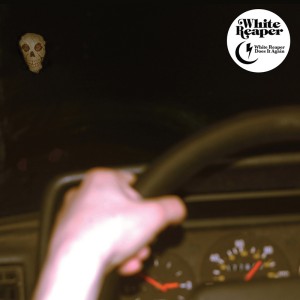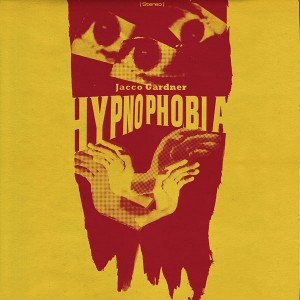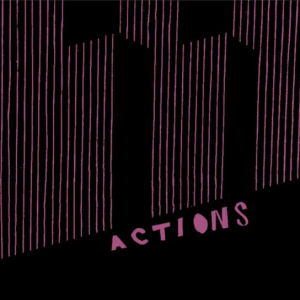Gardens & Villa – Music For Dogs
When Gardens & Villa’s Music For Dogs initial sounds flood through your speakers, immediately you get the impression of an electronic system booting up; “Intro” is almost a minute of futuristic synthetic sounds waving through your speakers. The level of anticipation swells with the beginnings of the huge sounds, all of which point to what’s to come next. Now, this is not the kind of entrance that the band really needs to make—Music For Dogs marks their third full-length record, following last year’s Dunes. And yet, the band amps you up for this collection of songs all the same, properly ensuring you’ve transitioned into the right frame of mind before you begin the album.
And when you do enter the first real track, “Maximize Results,” the band hits you hard with their synth pop: pulsating synths create a constant harried motion to the song, all while the vocal performance doubles up on this mood. Underlying this borderline paranoid feeling there’s a groove to the song in the distorted guitar riffs and the handclap beat. This then transitions quite abruptly into the light and airy “Fixations,” which strikes quite a bright note after the heavy opening number. Here, the synths are still buzzy and drone-like, but not as oppressive and dark as the first number. The piano also helps to brighten up the song, with its bouncy notes joining the mix with flair. It’s a catchy contrast to its predecessor before the band jumps back into the overall darkness that seems to coat most of the record.
While the album starts out quite strong with these two solid tracks, it seems as though the energy is a little difficult for Gardens & Villa to maintain through the duration of Music For Dogs. This isn’t to say that there aren’t some great and memorable tracks on the record, as there are numbers like “Alone In The City” and “I Already Do” that tack onto the aforementioned tracks as standouts. Oddly enough, where this synth pop group seems to shine the brightest on this record is not when they’re grooving hardest, but when the songs push into a tender emotional level. “Alone In The City” is a bit of a tender ballad type track that puts the vocal performance of Chris Lynch at very focal point. His voice is raw as it honestly professes lines like “Stay away from me tonight/I’ve had enough for once and it felt alright” and “This place is a nightmare/if I can’t be right there in your arms.” The sounds are subtle, and the nuance of sound that the band brings is glorious via the soft chimes that softly unfold amidst the gritty guitar and gently floating synth sounds. Same goes for the last song of the album, “I Already Do—” the band strikes this balance of groovy tune with tenderness in the mix of premature nostalgia in both the lyrics and bouncing piano sound.
Music For Dogs hits hard at first listen, but then slowly fades into a different tone, but still shows a band that’s come a far way from their debut album of 2011. The tracks that float to the surface upon further listening are evidence of their growth and movement into a balance of harsh electronic sound with real human emotion.













